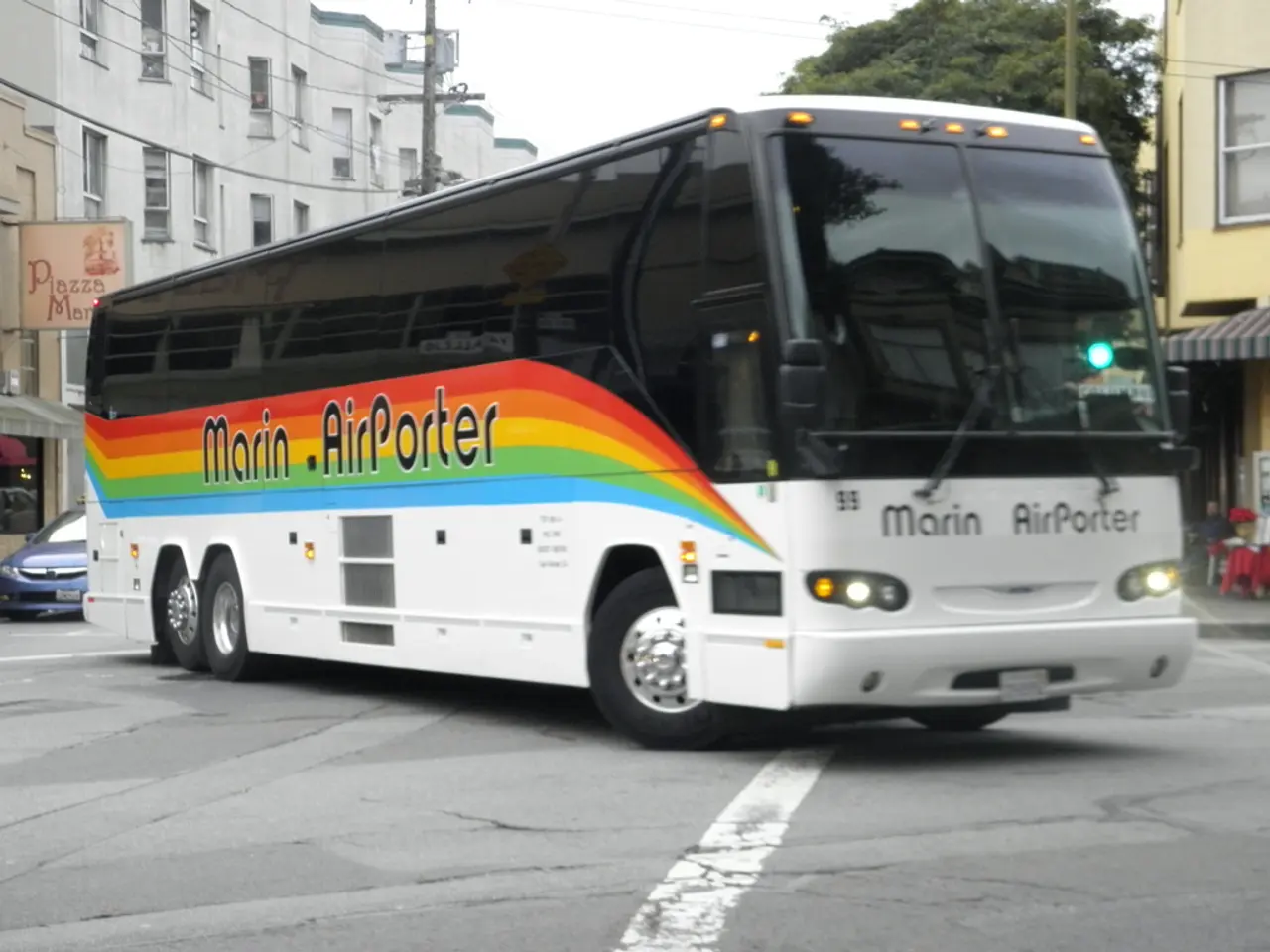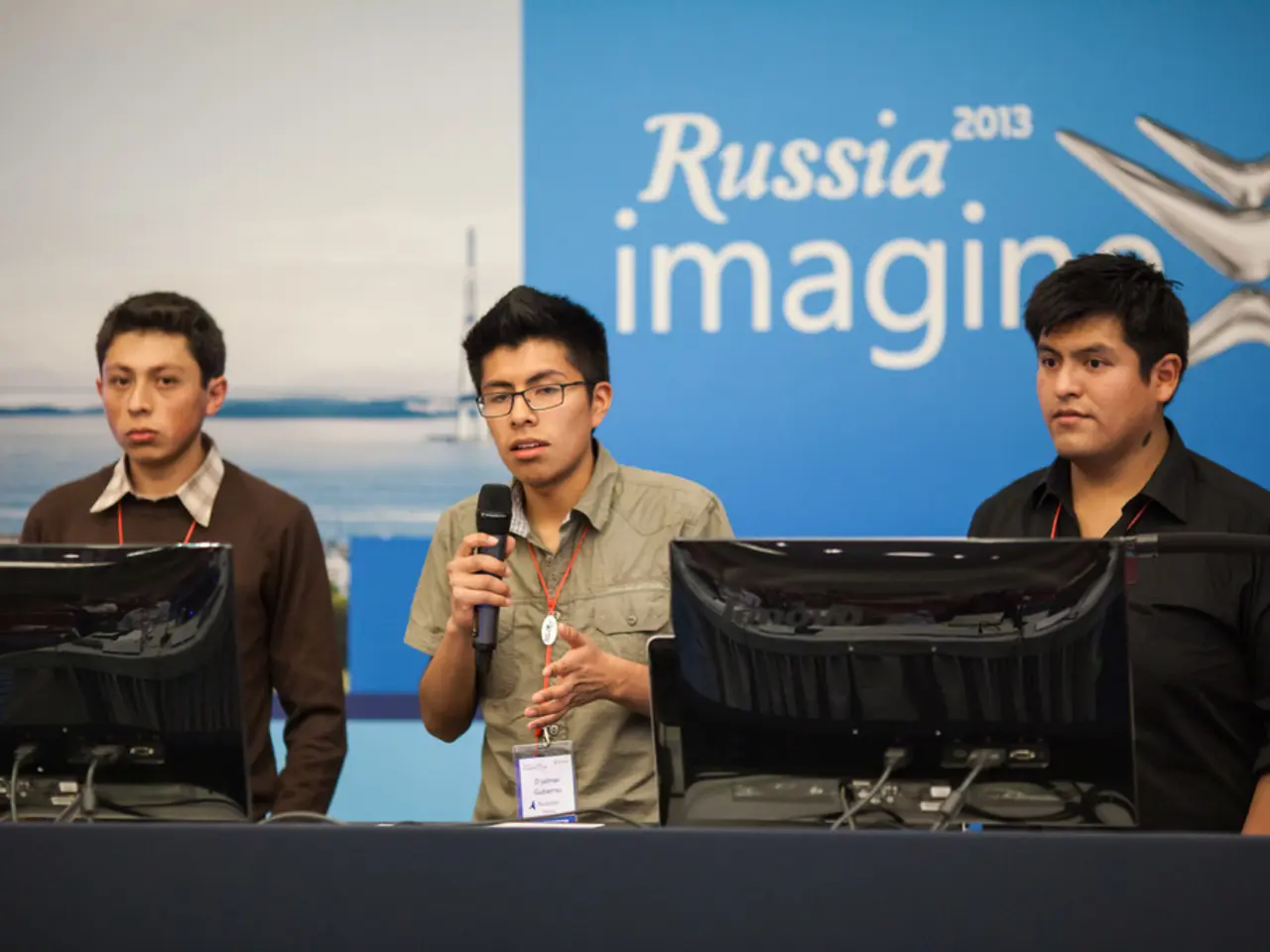SEV's Experience at Europaplatz Karlsruhe: 'Passenger Waiting Impossible'
Coping with Tight Transfers at Knielingen's Europaplatz
Navigating public transit in Knieligen just got trickier due to ongoing construction in Ruppurrer Straße and Blučherstraße. If you're relying on public transport, you'll need to switch from line 2 to a Schienenersatzverkehr (SEV) bus at Europaplatz. But coordinating those schedules can be a headache.
When the Bus Doesn't Play Nice
Remember that anonymous reader who tried to catch a SEV bus in early June? They missed the bus as it pulled away just as they and other line 2 passengers approached. Quite frustrating, right?
SEV's Unpredictable Schedule
The Karlsruhe Transport Authority (VBK) breaks it down: transfer points at Europaplatz work in three areas: the above-ground stop in Kaiserstraße, the underground U-stop, and the SEV platform in front of the Sparkasse.
Got plenty of lines passing through Europaplatz, such as S12, S2, S5/S51, 1, 2, 4, 9, and 73. That's why VBK doesn't offer seamless connections between individual lines during regular operation. As Europaplatz is one of the bustling transfer hubs in the city, targeted timetables between specific lines, like between line 2 and line 12, are only available in specific times.
However, that changes during SEV operation: While SEV line 12 runs every 20 minutes and line 14 operates at night, they ensure a targeted connection to line 2 or night line NL2.
The Countdown is on
VBK claims that electronic timetable information (EFA) factors in individual conditions like passenger location and walking speed. Consequently, the EFA shows only achievable connections - depending on whether you're at the above-ground or underground stop.
For instance, it takes seven minutes to transfer from tram line 2 to the bus in the 20-minute SEV line 12 cycle. In the opposite direction, passengers are given just three minutes.
A Squeeze at Europaplatz
During SEV operation, Europaplatz gets hammered. According to the VBK spokesperson, up to 15 SEV trips per hour need to be managed during peak times - nearly four times as many as regular bus line 73.
Unfortunately, each bus only has about a three-minute window due to the limited stop length. Wider turnaround times are planned at end stops like Knielingen Nord or Haus Bethlehem to prevent delays caused by passenger changes or heavy traffic. VBK also emphasizes barrier-free boarding and alighting, leading to tight transfer windows.
Kindness is a Choice, but Not a Plan
Our team was there on June 11 to observe the transfer situation. The verdict: The transfer times are indeed tight, with some passengers barely making the SEV bus. Yet, many bus drivers show leniency, waiting for latecomers, even reversing the bus to pick up a mother with a stroller and an elderly couple that couldn't reach the stop in time. But it's important to note that this isn't in the plan. As the VBK spokesperson explains, waiting for passengers at a 10-minute interval after departure is typically not feasible to maintain the schedule.
During SEV operation at Europaplatz, the industry of transportation becomes closely linked with finance, as the Karlsruhe Transport Authority (VBK) ensures a targeted connection between SEV lines 12 and 14, and line 2 or night line NL2. In contrast, seamless connections between individual lines like S12, S2, S5/S51, 1, 2, 4, 9, and 73 during regular operation are not available.
The tight transfer windows at Europaplatz, particularly during peak times, underscore the challenges faced in managing up to 15 SEV trips per hour. Despite the time constraints, many bus drivers display a willingness to wait for latecomers, even reversing the bus to accommodate passengers, demonstrating that kindness can often supersede strict schedules, but it is not a factor accounted for in their planning.




